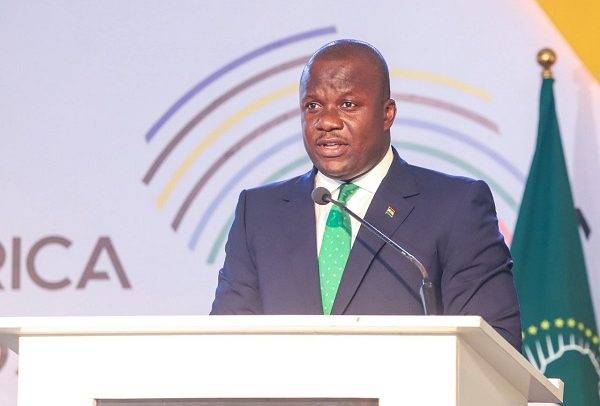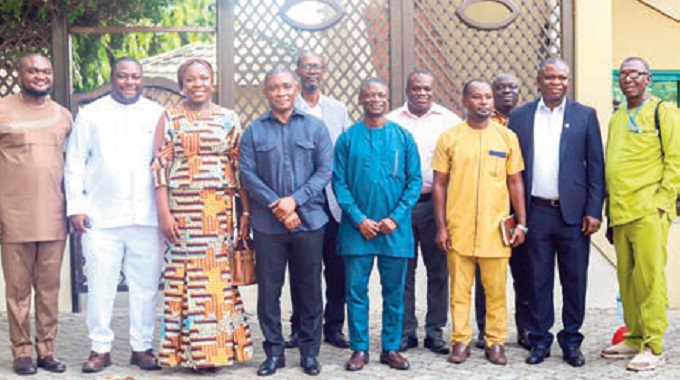
By Kizito CUDJOE
Ghana must implement a robust industrial policy to establish itself as a hub for mining support services within the West Africa sub-region, according to Dr. Charles Ofori, Policy Lead for Climate Change and Energy Transition at the Africa Centre for Energy Policy (ACEP).
Speaking on the need for strategic reforms, Dr. Ofori emphasised that an effective industrial policy would provide stakeholders with a framework to drive development and ensure sustained growth in the mining support services sector.
While acknowledging the collective role stakeholders need to play, he noted that industrial policy is critical for transforming Ghana into a leading provider of mining support services in Africa.
Dr. Ofori was speaking in an interview on the sidelines of a validation workshop organised by the Ghana Chamber of Mines in Accra and said this is among several recommendations made to the Chamber following a study they commissioned, which was conducted by ACEP.
The mining sector is essential to the country’s economy, contributing significantly to government revenue through corporate and employee taxes, royalties and dividends. In 2022, it generated approximately GH¢6.4billion in direct domestic tax receipts – making up about 16.6 percent of the country’s total tax revenue.
Gold production, in particular, is vital for foreign exchange earnings; accounting for around 39% of Ghana’s merchandise exports between 2011 and 2022. In 2022, gold generated around US$6.6billion, outpacing crude oil and cocoa exports.
The sector is set to grow with new discoveries of gold and lithium, alongside anticipated increases in salt production. Key projects – including Newmont Ahafo North, Cardinal Namdini, Azumah Gold and the Atlantic Lithium Ewoyaa project – are expected to produce approximately 875,000 ounces of gold and 365 tonnes of lithium annually, further boosting Ghana’s revenue and foreign exchange earnings.
Mining operations generate significant expenses, creating a market for mining support services which offer specialised goods and services at various stages of operations.
In Ghana mining companies spend a substantial portion of their budgets on procurement, primarily for goods and services which account for 31 percent to 64 percent of their mineral export revenue.
These expenditures, estimated between US$995million and US$3.2billion annually, are categorised into local spending, energy costs and imported consumables.
Over the past decade, it is estimated that about US$1.4billion has gone to local suppliers, US$658million to energy costs and US$278million to imports, with local transactions representing around 87 percent of total spending.
This, according to ACEP, creates a market worth US$2billion for mining support service companies in Ghana.
It is on the back of this value among others that Dr. Ofori stressed the need for a strong collaboration of all stakeholders, including linking the manufacturing and industrial sectors to the mining sector to make what has been envisaged a reality.
He particularly noted that the Ministry of Trade and Industry will have to lead the industrial policy efforts and the Energy Ministry to provide manufacturers competitive pricing regarding tariffs, working closely with the Ministry Ministry of Lands and Natural Resources and its key agencies.
The validation workshop was organised under the theme ‘Positioning Ghana as the Hub for Mining Support Services in West Africa’.
Chief Executive Officer-Ghana Chamber of Mines Dr. Sulemanu Koney, reacting to the work presented by ACEP, acknowledged that findings indicating Ghana is losing its competitiveness to neighbouring countries are accurate – especially considering the measures those countries have taken over the years.
This, he said, signals country to begin repositioning itself “to be in the top-tier of mining destinations” and he noted the study outlines how this can be achieved.
He asserted that given the country’s position as leading producer of gold in Africa, the study reinforces a need to take into account the commodity’s finite nature and ensure the necessary efforts are taken to “grow other industries” for the future.
“That is why, for us, this study is important. How can we squeeze a lot more value out of the mining value chain to sustain our economy, going into the future?” he queried.
Dr. Koney also pointed to successful examples like Dubai – which has leveraged its resource base to develop other economic sectors – and urged the country to maximise opportunities within the mining support services sector to ensure long-term economic resilience.
The post Industrial policy key to boosting domestic mining support services appeared first on The Business & Financial Times.
Read Full Story








Facebook
Twitter
Pinterest
Instagram
Google+
YouTube
LinkedIn
RSS